The memoirs, novels, and poetry that stood out most
This year has highlighted the particularities of that thing called reading. Some found books impossible to pick up; sustained attention to text on a page is hard when the world is in so much pain. Others turned to literature anew, rediscovering the ways it can refresh and inspire. Below are the titles we were most drawn to in 2020: a wide-ranging list that includes new spins on epic poems, stories about the interior lives of women, memoirs that eloquently challenged industries, and, yes, essays that made us laugh.
The Meaning of Mariah Carey by Mariah Carey, with Michaela Angela Davis
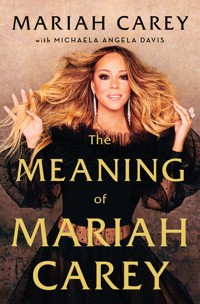
Marcel Proust had his madeleine, Charles Foster Kane had his sled, and Mariah Carey has her Ritz Cracker. “I’d hold the buttery, salty, crunchy goodness up to my nose, close my eyes, and breathe in one long, luxurious sniff,” she writes early in her memoir, sharing a childhood memory of her father’s strict rationing of snacks. “With precision, I would take one teeny-weeny bite along the scalloped edge.” Small moments like this, rendered in prose that’s amusingly fussy yet still lucid, elevate The Meaning of Mariah Carey from celebrity propaganda into impressive storytelling. The journalist Michaela Angela Davis has helped distill Carey’s knotty trajectory into a narrative propelled less by the reader’s voyeurism than by the authentic tensions of Carey’s life. Sharp analysis about race, poverty, fame, and control—plus insider takes on how popular culture has transformed since the late ’80s—harmonizes with the scene-setting detail work. The results are like Carey’s music: grandiosity made into art by humor, craft, and complexity. — Spencer Kornhaber
[Read: There’s never been a story like Britney Spears’s]
African American Poetry: 250 Years of Struggle & Song, ed. Kevin Young

In describing the works he selected for this compendium of verse, the poet and incoming Smithsonian director Kevin Young elaborates on the late writer June Jordan’s celebration of the form: “In sonnets and anthems, odes and epics, Black poets in the Americas confronted violence and indifference, legal barriers to reading and writing, illegal suppression of voting rights, and outright threats.” The anthology includes writers such as Claude McKay, Derek Walcott, Gil Scott-Heron, Natasha Trethewey, Robin Coste Lewis, and my colleague Clint Smith. It’s not an exhaustive volume, as Young writes, but in its more than 1,000 pages, it captures the depth and urgency of Black poets’ contributions to the form and to the country. Without sacrificing the nuance and specificity of each poet’s work—or of the experiences that tie Black people to one another—the collection also serves as a corrective to omissions in the larger poetry canon. Young has undertaken a difficult archival endeavor, leaving the reader with something worth celebrating in the process. — Hannah Giorgis
The Vanishing Half by Brit Bennett
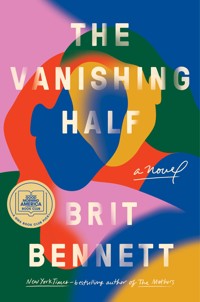
Growing up in New Orleans, I had always heard stories about my grandmother’s brother, who left the family behind and moved out west to begin a new life passing as a white man. When I started reading Brit Bennett’s The Vanishing Half, I was not prepared to see so much of my family’s story reflected in it. It became our family’s first “pandemic book club” selection and served as a catalyst for the sorts of conversations we’d never had quite so directly. The Vanishing Half traces the lives of identical twin sisters: one who moves away and passes for white—marrying a white man and raising a daughter who doesn’t realize her true lineage—and one who remains in the town where they grew up and raises her Black daughter. What I was most struck by was the way Bennett so fully captures the impossibility of someone simply “leaving” their race behind, subtly conveying how one sister is always looking over her shoulder, wary of being found out. The book deftly reveals that there are pieces of our past that continue to follow us no matter how hard we try to escape them. — Clint Smith
Breasts and Eggs by Mieko Kawakami (translated by Sam Bett and David Boyd)

The workaday lives and thoughts of women may not seem revolutionary, but Mieko Kawakami manages to make them so in Breasts and Eggs. Each of the central characters struggles, in her own way, with the effects of misogyny and poverty. Makiko, a hostess worn down by decades of grueling service work, is considering breast-enhancement surgery. Her 12-year-old daughter Midoriko, deeply affected by her mother’s difficulties, hates the idea of becoming an adult woman; her apprehension manifests as a refusal to speak out loud to her family. Makiko’s sister Natsuko, a writer who lives alone, mulls using a sperm bank to have a child. Kawakami makes blunt but dignified space for this trio. At one point, Midoriko, full of rage and grief and anxiety, finally breaks her silence in a breathtaking kitchen confrontation with her mother that involves dozens of smashed eggs. The electric moment channels the ethos of the book: raw, funny, mundane, heartbreaking. — Jane Yong Kim
[Read: Who you’re reading when you read Haruki Murakami]
Beowulf: A New Translation by Maria Dahvana Headley
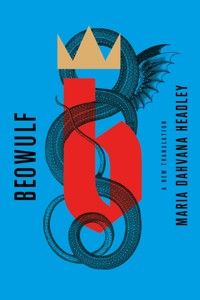
I’ll admit to a moment—more than one, actually—of fogey-ish recoil as I stepped into the jabbingly familiar/unfamiliar world of Maria Dahvana Headley’s Beowulf. “Blinged-out”? “Hashtag: blessed”? “Beowulf gave zero shits”? Too groovy, I feared, for this Beowulf nerd. But not at all. Headley’s text springs these surprises strategically, almost trickily, little fireworks of idiom to hold our attention as she winds with great fidelity of purpose into the depths of the Beowulf poet’s language—the alliteration, the compound words, the sinewy formality, the doleful magic, and the hard existential light. Thrillingly, it becomes a double act: Headley and her ancient forebear, diving together into the word-hoard. Her Grendel—“brotherless, sludge-stranded”—is more pitiable than ever, her Beowulf more of a thumping super-jock. As for the dragon: “the firedrake raked coast-to-coast / with claws, charred gilded Geatland without pause.” Right on. — James Parker

Before she abandoned her ill-paid life in the publishing business for the San Francisco startup scene in 2013, Anna Wiener was a Brooklyn literary type, socially anxious and “affectedly analog” (owner of a record player she rarely used, dater of men of artisanal bent), not to mention oblivious to “the people behind the internet.” She was, in other words, just the unlikely observer of Silicon Valley I’d been waiting for: an outsider-insider, articulately insecure and hyper-self-aware. Her eye and ear for the tribal details of tech-bro culture are acute. Wiener is also unsparing about her own fascination with an ethos of social and generational arrogance: Variously employed on the customer-support side of the tech world, she feels driven to impress millennial bosses who are her peers, yet all-powerful. Her indictment of the industry’s myopia and insularity, preaching connectivity while abetting the fracturing of America, is close-up and personal. She never aspired to the elite ranks of coders. But in Wiener, the Bay Area now has a brilliant decoder. — Ann Hulbert
[Read: Why normal people want to work in Silicon Valley]
A Burning by Megha Majumdar
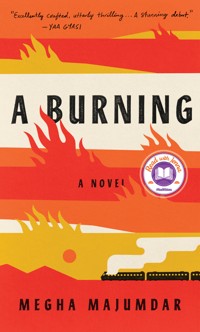
A reader of Megha Majumdar’s debut novel might describe it as propulsive, though it’s not especially suspenseful. From the get-go, A Burning’s outcome seems almost ordained, starting with the story of Jivan, a young woman in Kolkata, India, who witnesses a terrorist attack and writes an inflammatory Facebook post about the lack of protection offered by police in its aftermath. What drives the novel forward, though, are the distinctly vibrant voices of Jivan and her two fellow narrators, who round out the plot. The humanity with which Majumdar endows her interconnected characters yields an absorbing kineticism—and makes the book’s violent end all the more tragic. Some have noted the parallels between Majumdar’s themes and the flashpoints of current American life, as if to convince U.S. readers that the book is relevant to them. Those parallels are real, and noteworthy. But to me, in this year of restricted mobility, literary immersion in a place far from me was a major part of the appeal. — Amy Weiss-Meyer
Entitled: How Male Privilege Hurts Women by Kate Manne
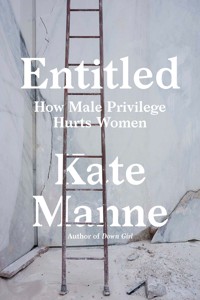
Because of (gestures frantically at everything), this year I’ve been craving books that explore the world’s invisible scaffolding: the assumptions and incentives and habits of mind that shape the way people treat one another. Entitled, from the Cornell philosopher Kate Manne, does that and more. A sequel of sorts to her 2017 blockbuster Down Girl: The Logic of Misogyny, this book expands on the argument Manne made in the earlier work: that misogyny is best understood not as a personal failing but as a cultural system that keeps women in their place. With wincing clarity, Manne explains how a society that organizes itself around the wants and whims of men will radiate that bias into every area of life (pop culture, reproductive rights, a presidential campaign that began with a relatively diverse field of candidates and ended as a contest between two white, straight, male septuagenarians). Her observations offer that rare brand of insight: the kind so ingenious that it quickly begins to seem obvious. — Megan Garber
[Read: Pop culture failed to imagine Kamala Harris]
Minor Detail by Adania Shibli (translated by Elisabeth Jaquette)
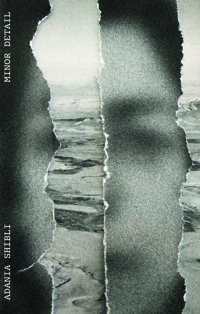
“Nothing moved except the mirage.” So goes the eerie opening sentence of Adania Shibli’s slim, stunning novel Minor Detail. The two-part story begins in 1949 with an Israeli commander on campaign in the occupied Negev desert, surveying the landscape while blithely overlooking the brutality of his soldiers. Part two leaps roughly 50 years ahead to the city of Ramallah, where a woman becomes obsessed with a coincidental detail that links her to an atrocity committed under the aforementioned commander’s watch. The reader, too, becomes obsessed: Minor Detail’s historically spliced structure induces sleuth-like tendencies, encouraging one to pin string across the sections. A haunting meditation emerges—on the historical and personal legacies of war, dispossession, and, perhaps most fundamentally, human cruelty. A major novel of minor proportions. — Oliver Munday
Unworthy Republic by Claudio Saunt
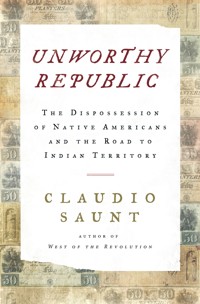
While many of the books I’ve enjoyed this year have transported me away from the horrors of everyday life, Unworthy Republic excavates the origins of modern-day cruelties. Claudio Saunt’s thorough, stark account of the so-called Indian Removal Act of 1830 doesn’t just argue that the United States “belongs on a woefully long list of states that sponsored mass deportations.” In charting “the Republic’s racial fixation on the land itself,” Saunt also contends that the country’s unprecedented 19th-century expulsion of Native Americans inspired other colonial regimes and, along with the slave trade, laid a foundation for the draconian immigration policies and environmental racism of our current era. Unworthy Republic details the formal process by which Indigenous people were expelled west, and who profited from their displacement. Saunt draws on historical records and firsthand accounts, relaying with vivid imagery the devastation wrought within individual families and on a larger scale. It’s a sobering read that demands—and imagines—a reconsideration of the very land under our feet. — H. G.
Kim Jiyoung, Born 1982 by Cho Nam-Joo (translated by Jamie Chang)
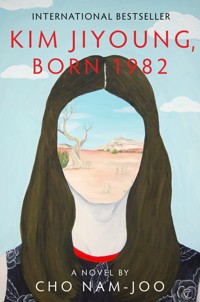
Cho Nam-Joo’s debut novel opens with what the protagonist’s husband calls her “abnormal behavior.” Kim Jiyoung seemingly becomes different women: her mother, her newborn daughter, a college friend who died in childbirth. This recurring phenomenon may seem to be the set-up for a surreal thriller, but the rest of the novel instead chronicles the quietly disturbing incidents that led to these dissociative episodes. An elementary-school boy’s pranks felt “more like harassment or violence.” A college classmate compared Jiyoung to “chewing gum someone spat out.” She was edged out of the workforce after getting pregnant. Any woman in South Korea might experience moments like these—and many do, as Cho explains in footnotes throughout the novel. Given the almost-banal storyline, the book’s incredible popularity may seem surprising—it sold more than a million copies in South Korea and sparked a nationwide debate about gender equity. But its magic lies in these individually mundane events presented in merciless succession. The small traumas build up, infusing the novel with a sense of foreboding that stems not from the strange, but rather from the familiar. — Kate Cray
The Lying Life of Adults by Elena Ferrante (translated by Ann Goldstein)

Elena Ferrante fans might’ve wondered how she could possibly follow her Neapolitan Novels series. That quartet tracked the rivalrous friendship of two women, Lila and Lenù, from girlhood to old age, and seemed the sort of opus one writes to punctuate the end of a career. Ferrante’s newest novel, The Lying Life of Adults, proves we were shortsighted to doubt her (after all, she’s been at this since 1992, when she published the dizzying Troubling Love). Lying expertly unravels the small but weighty interactions that shape us. This time, Ferrante zooms in on adolescence, following a girl named Giovanna who has learned that the adults in her life often lie, whether out of selflessness or self-preservation. If the novel is less intricately plotted than the quartet, it’s no less emotionally nuanced, tugging at the same tangled themes: competitive female friendships, infidelity, class. This volume’s condensed timeline and character list come as a relief—and make it easy to devour in an afternoon. — Stephanie Hayes
Interior Chinatown by Charles Yu
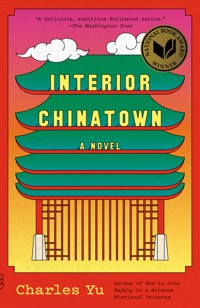
Early in the pandemic, I reread Paul Beatty’s The Sellout, a sharp racial satire that’s beloved for the richness with which it details its characters and Los Angeles neighborhoods. Charles Yu’s Interior Chinatown has been compared to Beatty’s book, and diving into it a few months later I could see the shared DNA. The protagonist of this novel-in-the-form-of-a-teleplay is Willis Wu: He has a bit part on a cop show—usually he’s Generic Asian Man, sometimes he’s Delivery Guy—and yearns to graduate to the role of Kung Fu Guy. The story follows Willis both on set and in the Chinatown SRO where he lives, cannily blending fiction and reality to, perhaps, make a point about how easily the pernicious logic of the former can seep into the latter. Interior Chinatown turns into a haunting meditation on the unending boxes that Hollywood and society create for many of us. But, like Beatty, Yu vividly sketches Willis and the struggling-actor inhabitants of the SRO—never forgetting to flesh out the people he cares about most. — J. Y. K.
Transcendent Kingdom by Yaa Gyasi
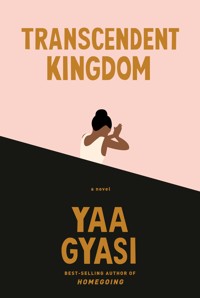
I remember reading Yaa Gyasi’s 2016 debut, Homegoing, and being blown away by the book’s ambition. An intergenerational story that crossed oceans and epochs, it stayed with me for years. Gyasi’s latest book, Transcendent Kingdom, uses a narrower lens but is no less gripping. It follows Gifty, a sixth-year doctoral student in neuroscience who is reckoning with her family’s relationship to mental illness, addiction, and abandonment. The work she does in her lab, studying the reward-seeking behavior of mice, channels the grief she still carries about her brother’s death from opioids. Gyasi skillfully moves back and forth between the present day and Gifty’s childhood, richly detailing her characters’ lives and treating these heavy topics with complexity and honesty; in particular, the scenes portraying Gifty’s brother’s addiction are devastating without being emotionally overwrought. Writing a successful follow-up to an impressive debut is difficult, but Gyasi certainly did. — C. S.
[Read: Yaa Gyasi on the mysteries of faith and reason]
Wow, No Thank You by Samantha Irby
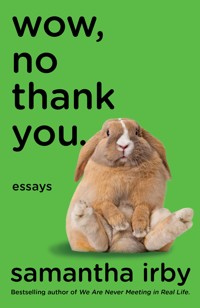
“Imagine if real life had an off switch!” Samantha Irby exclaims toward the end of her essay-length meditation on the joys of having a smartphone. It’s the kind of line Irby deploys to delicious effect throughout her books—at once wistful, snarky, and just a bit morbid. Wow No Thank You, her most recent collection, reads like a series of confessions; her tone leans acerbic, but these essays on the difficulty of making friends in adulthood or the unmitigated terror of occupying a human body are deeply intimate. The collection weaves together insights about misogyny, racism, and the alluring ills of capitalist pursuits with Irby’s unfailing humor. “Uncreased, unlined foreheads and cheeks are a prerequisite for tricking people into believe you have a good life,” she writes, only to immediately reveal her real objection to Botox: “But life is fucking stressful and too goddamn long, and I am afraid to get needles in my face.” Brisk and inventive in form, Wow No Thank You is a quarantine book that conjures that most elusive of experiences: idle time spent with a friend, talking about everything and nothing at all. — H. G.